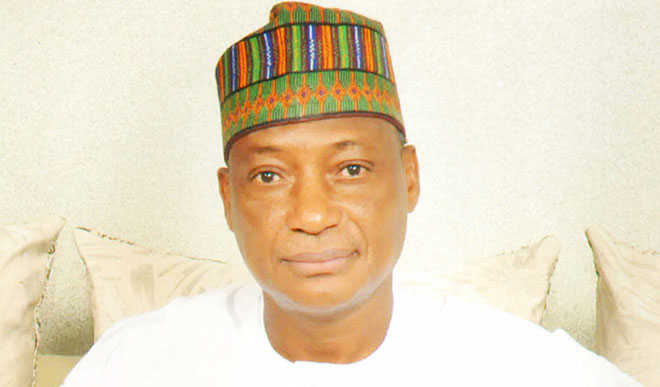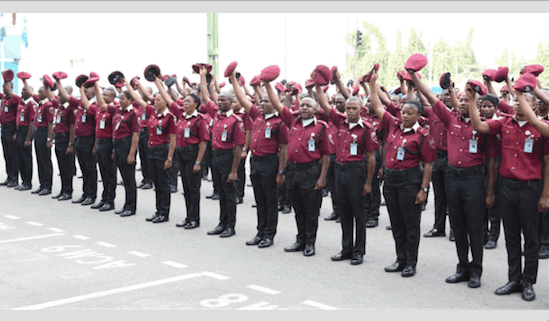Petrol price hike looms

Kamarudeen Ogundele, Abuja
An increase in the price of Premium Motor Spirit (PMS) or petrol is imminent as the Federal Government says it can no longer bear the N120 billion ($263,248 million) spent monthly to make the product available Nigerians.
The Group Managing Director (GMD) of the Nigerian National Petroleum Corporation (NNPC), Mele Kyari, disclosed this at the fifth edition of the Special Ministerial Briefings coordinated by the presidential communication team.
Stating that the NNPC absorbs the cost differential, which is recorded in its financial books, Kyari, explained that while the importation and handling charges amount to N234 per liter, the government is selling at N162 per liter.
He said the NNPC could no longer afford to bear the cost, adding that sooner or later Nigerians would have to pay the actual cost for the commodity.
The GMD said the NNPC was paying between N100 and N120 billion monthly to keep the pump price at the current levels, insisting that market forces must be allowed to determine the pump price of petrol in the country.
The NNPC boss said, “Today, NNPC is the sole importer of PMS, we are importing at market price and we are selling at N162 per litre to day.
Looking at the current market situation today, the actual price could have been anywhere between N211 to around N234 to the litre.
“The meaning of this is that consumers are not paying for the full value of the PMS that we are consuming and therefore, someone is bearing that cost.
As we speak today, the difference is being carried on the books of the NNPC and I can confirm to you that the NNPC may no longer be in the position to carry that burden and because we can no longer afford to carry it on our books.
“As we speak today, I will not say we are in subsidy regime but we are in a situation where we are trying to exit this underprice sale of PMS until we come to terms of the full value of the product in the market.
“PMS sells across our borders anywhere around N300 to the liter and in some places up to N500 to N550 to the liter.
“Our current consumption is evacuation from the depots about 60 million liters per day, we are selling at N162 to the liter and the current market President Muhammadu Buhari has called on the international community to further collaborate in tackling some of the major threats to peace and human survival across the globe.
He said such threats include terrorism, insurgency, displacement of persons, and climate change, reiterating that the growing challenges pose real threat to human existence.
Mr Femi Adesina, the President’s spokesman in a statement, said Buhari made the call when he received Letters of Credence at the State House, Abuja, on Thursday, March 25.
The President received letters of credence from High Commissioner of The Gambia, Mr Mohamadou Musa Njie, Ambassador of South Korea, Mr Kim Young-Chae, and Ambassador of Slovak, Mr Tomas Felix. Others were High Commissioner of Australia, Mr John Gerard Donnelly, High Commissioner of Bangladesh, Mr Masudur Rahman and Ambassador of Guinea Bissau, Dr Jaao Ribeiro Butiam Co. President Buhari urged diplomats to work towards building stronger relations, with focus on providing joint solutions to rising human and natural challenges.
He said: “I would like to lay emphasis on the need for us to come together to address and overcome our common challenges. Terrorism, Insurgency, Displacement of Persons, Climate Change, Population Explosion, Human Trafficking, Corruption, Poverty, and Proliferation of Small Arms and Light Weapons are all either the sources of conflict or results of it.
“These challenges though on a diverse scale, threaten the existence of humanity and human relations. “These challenges underscore the need for the international community to work together to collectively identify appropriate measures to globally overcome these challenges.’’
The Nigerian leader told the envoys that “the novel coronavirus pandemic remains humanity’s greatest threat as it does not only affect public health, but also has a devastating effect on people’s economy and livelihood.
“Although countries around the world have commenced the vaccine rollout against the pandemic, mitigating the spread of the virus and the impact of its infection, remains cause for concern.’’
Buhari assured the new Ambassadors that Nigeria enjoyed very good bilateral relations with each of their countries, and there was need to enhance the cordial relations for the joint benefit of Petrol price hike looms price is around N234, actual market price today.
So the difference between the two, multiplied by 60 million x 30 will give you per month. I don’t have the numbers now, this is a simple arithmetic that we can do but if you want exact from our books, I do not have it at this moment but it’s anywhere between a hundred billion and up to 120 billion naira per month. I don’t have the exact number.”
Kyari stated that upon full deregulation, oil markets will begin to import PMS thereby taking the burden off NNPC and bringing direct sale-direct purchase (DSDP) Programme to an end.
NNPC uses a direct sale-direct purchase (DSDP) mechanism to secure Nigeria’s gasoline requirements in exchange for crude. The GMD said, “Upon the full implementation of the deregulation, we expect that all oil marketing companies to commence import even now so that that burden of import will be taken away from the NNPC or even the supply for when local refinery is made available so that NNPC will not be sole supplier of PMS into this market.
“So once this situation arises, you are sure that the a direct sale-direct purchase (DSDP) programme will automatically vanish because, you will have no further need for it because market forces will now determine the import and export.
“We know there’s one major challenge why oil marketing companies have not started importing which is around access to foreign exchange and we are working on this with the Central Bank of Nigeria (CBN) and as soon as that is available, oil marketing companies will also resume import of petroleum products.”
Answering questions on the two agreements between Nigeria and Niger Republic for the importation of petrol from the neighboring country to Nigeria, the Minister of State for Petroleum, Timipre Sylva, explained that it is a way to boost trade between the two countries.
Nigeria and Niger had in July 2018 agreed to build a pipeline to bring crude oil from Niger to the proposed Katsina Refinery.
The agreement was followed in 2020 by another one signed between the two countries on petroleum products transportation and storage. Sylva said Nigeria wanted to legalize the thriving illegal petroleum products sale already going on between the countries, adding that the country also needed to share its experience in the oil exploration sector with neighboring countries.
He said, “You know that Niger is a smaller country and Nigeria is more experienced in oil exploration than most countries in Africa. You find out that most of these countries have these constraints.
“Although, we have this agreement with Niger but they have constraint on how to deliver on it to this country because of the contract they have with the Chinese.
“So, if we realize that they have constraints we can change. The whole idea is that Niger has 20,000 bpd which is even bigger than their consumption.
“There is already illegal trading going on between Nigeria and Niger. So, what we want to do is to see how we can legalize it.
“We want to begin to create business with our neighbors. This is what ECOWAS and AU are trying to encourage. That is inter-regional trade and we begin to trade among ourselves.”
Sylva, also said the processing of award of marginal oilfield licenses had been completed while the 161 winning bids had been notified and that 50 percent of them had paid the signature bonuses.
He said, “The process has been completed and there were 161 winning bids and they have been notified and we have started receiving signature bonuses paid by the winners.
At least from the last account report I got from DPR, almost 50% of the winners have paid.
“What we are expecting from the whole process is about $600 million and of course we have also given allowance for people to pay in naira so you have to pick which currency to pay in – in naira or dollars.
“So at this point we cannot give any figure in any currency (referring to how much is paid so far) but just to tell you that payments have been encouraging and they have up to April 20th, so there is some time although the jury is still out but we believe that by April we would have got a lot of them to pay.”
On the Petroleum Industry Bill (PIB) awaiting passage, the minister said the leadership of the National Assembly had assured that it was working assiduously to pass the PIB in April 2021.
Sylva told reporters that the bill would not suffer a setback, going by all indications from the leadership of the National Assembly. He stressed the importance for Nigeria to steer away from oil to gas, adding that the 20-year-old PIB would attract a lot of investments to the gas sector.
Reacting to Senator Dino Melaye’s analysis of the proposed rehabilitation of the Port Harcourt refinery, Sylva said the Federal Government remained committed to its promise to deliver a functional refinery to Nigerians in due time He advised Melaye not to delve into issues he has little or no knowledge of.








